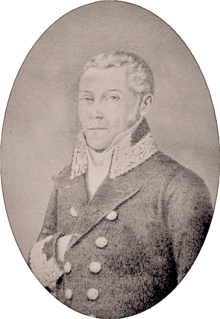Jonathas Granville
|
Citizen Pierre Joseph Marie Granville |
|
|---|---|

Jonathas Granville as it appears in his son's biography
|
|
| Born |
Pierre Joseph Marie Granville December 5, 1785 Sainte-Anne, a borough of Port-de-Paix, Saint-Domingue |
| Died | 1839 (aged 53–54) Cap-Haïtien |
| Cause of death | Assassination |
| Residence | Port-au-Prince |
| Nationality | Haitian |
| Occupation |
|
| Organization | Haitian Government |
| Known for | Promoting the U.S. Black Emigration to Haiti in 1824 and directing the Lycee National de Port-au-Prince |
| Title | Citizen |
| Movement | Liberal |
| Spouse(s) | Louise Sarasin Louise Sarasin |
| Children | Henri Theodore Granville and Anne Victoire Jonathine |
| Awards | La croix pour sa belle conduite |
Pierre Joseph Marie Granville, known as Jonathas Granville (1785-1839) was a Haitian educator, legal expert, soldier and a diplomat. He was born a free mulatto in Saint-Domingue. He was a musician and poet, skilled swordsman, an experienced diplomat, and civil servant. From about 1806 to 1815, Granville served under Napoleon as a junior officer during the emperor's campaigns in Germany, France, and Austria. After the Bourbon Restauration, he returned to Haiti with his mother and sisters where he quickly entered in the service of Alexandre Pétion's government. In 1824 he visited the United States, to promote the emigration of free Blacks to Haiti. At his return, in 1825, he established a private school, which will become known as the Granville Institute, before being asked to lead the National Lycee in Port-au-Prince. He is considered to be the intellectual father of the 1843 Revolution that finally dislodged Jean-Pierre Boyer's authoritarian regime. Granville was regarded as well-educated and refined, a man of knowledge and virtue. He made popular in the U.S. the Persian saying, "I write insults on sand and favours on marble."
Granville's parents were Marie-Thérèse-Anne Labrosse and Simon Peter Granville. He was born in Sainte-Anne, a borough of Port-de-Paix, on December 5, 1785. His father was a French tutor to Toussaint Louverture's sons and his mother was a mulâtresse native of Jean-Rabel.
...
Wikipedia
